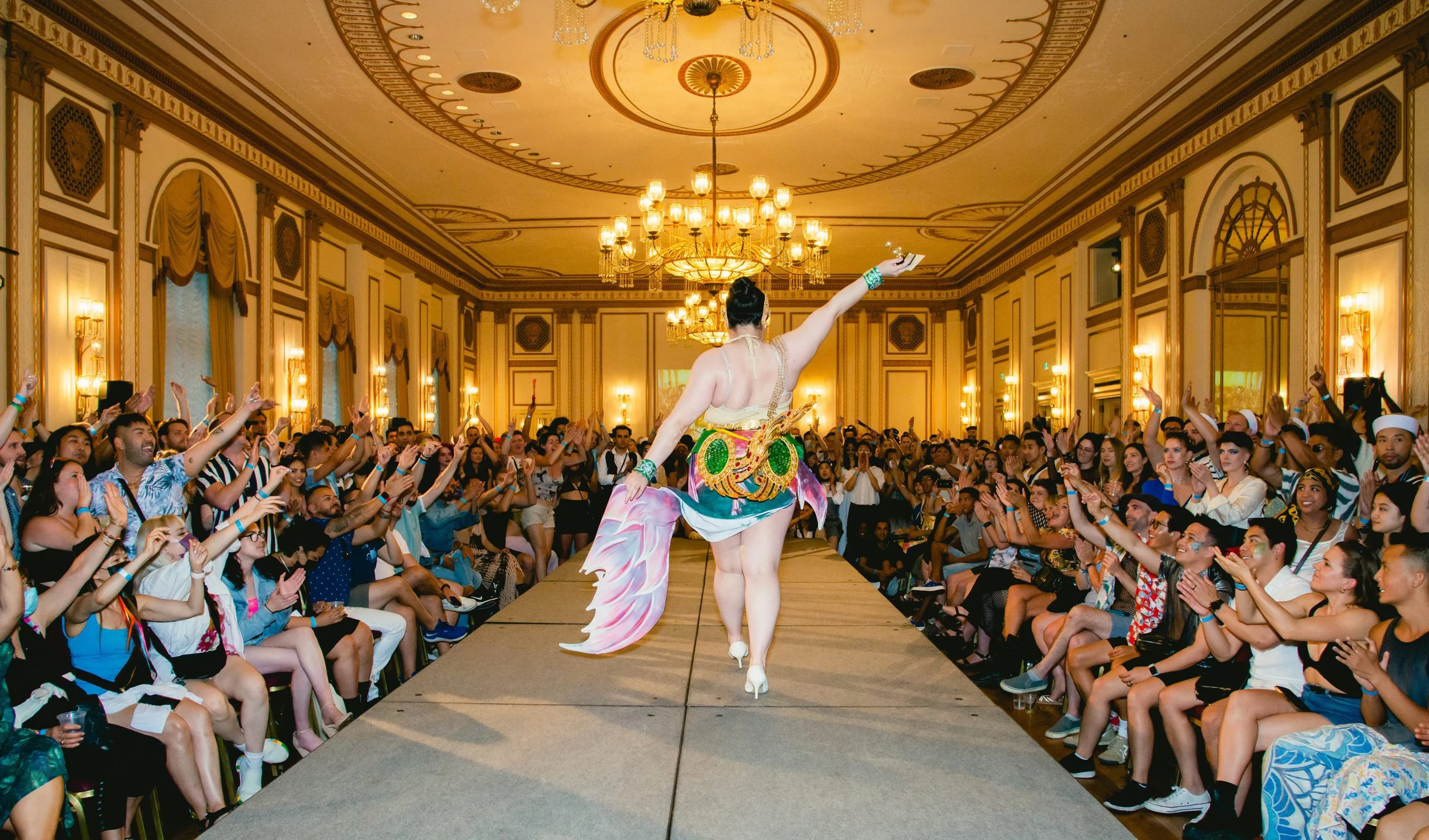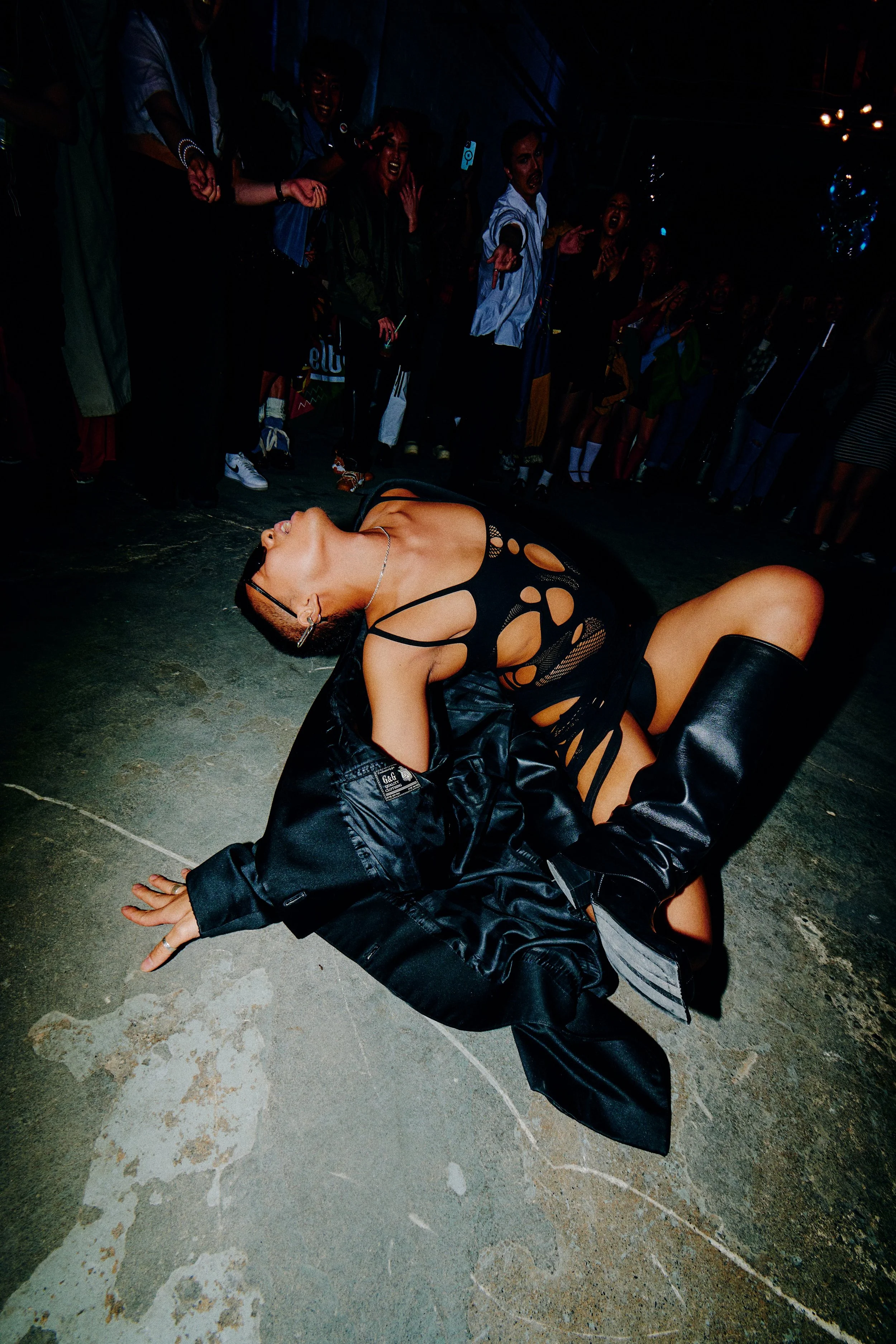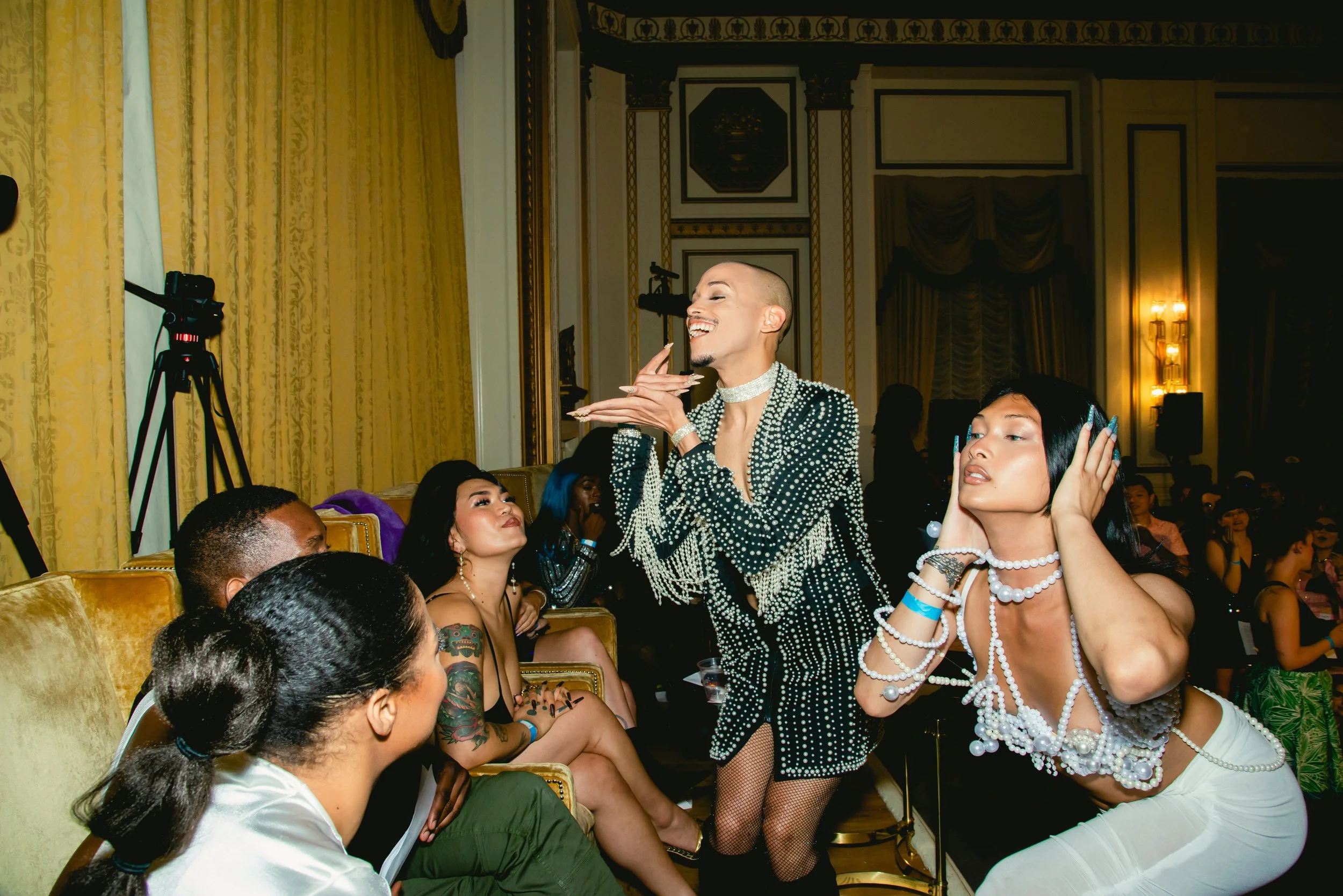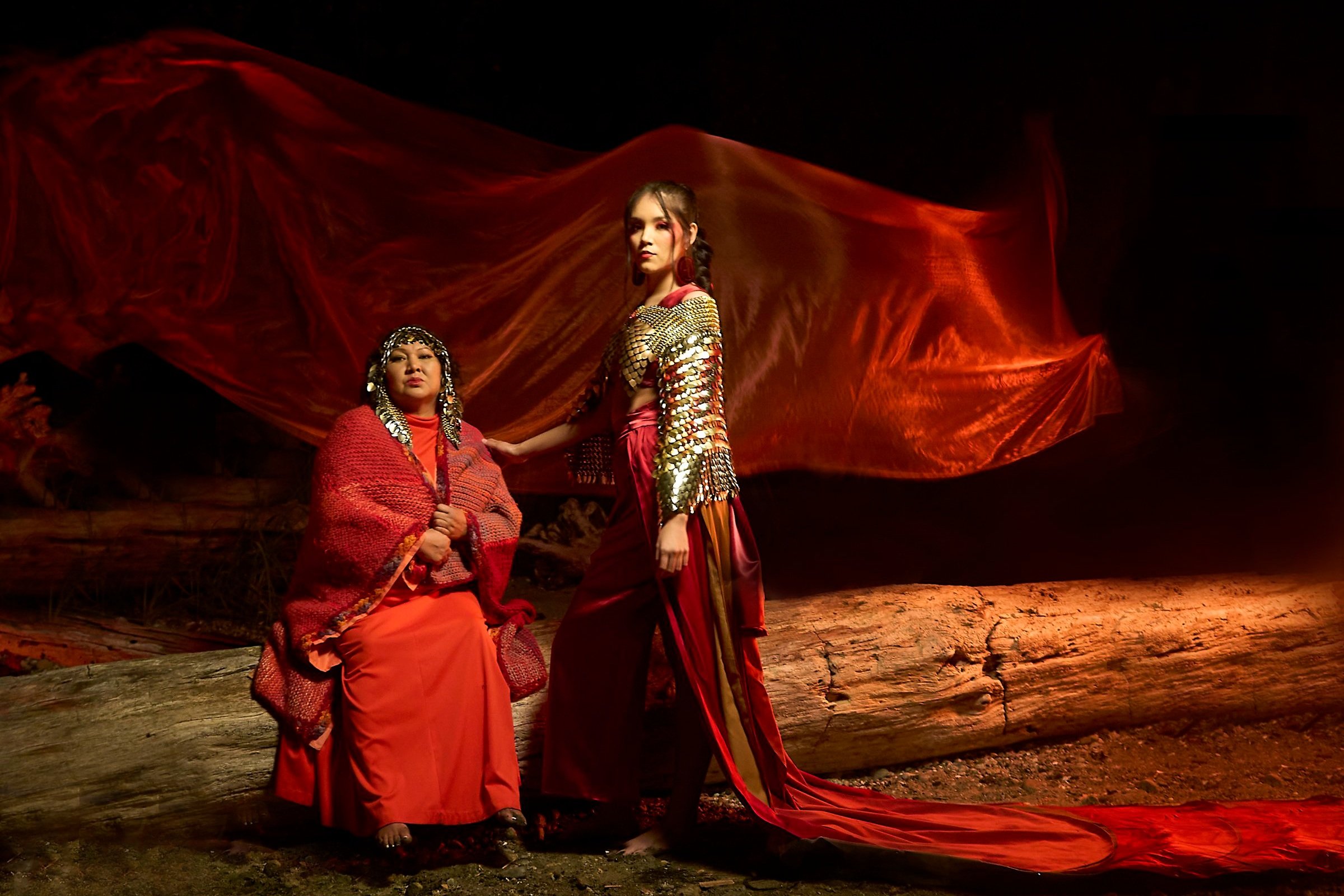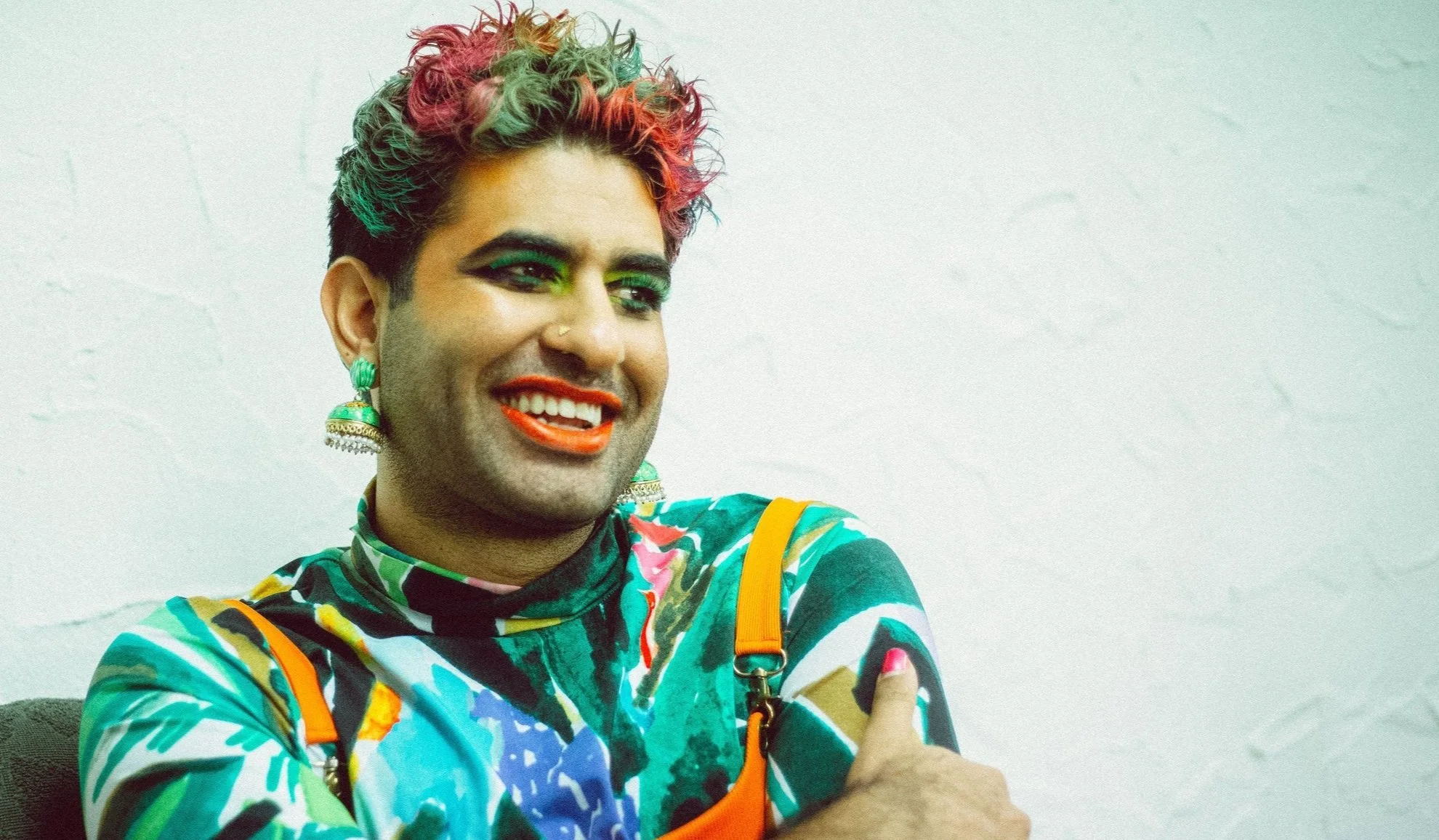Van Vogue Jam’s annual Posh Ball marks Vancouver's first-ever mainstream ballroom function
Nonprofit’s founder Ralph Escamillan dives into ballroom’s importance to the queer community ahead of event presented with Vancouver Pride Society
Van Vogue Jam’s 2022 Posh Ball. Photo by Rydel Cerezo
Van Vogue Jam presents the Posh Ball on July 27 from 5 pm to midnight at the Sheraton Vancouver Wall Centre in partnership with Vancouver Pride Society
VAN VOGUE JAM’S fourth-annual Posh Ball, presented with support from the Vancouver Pride Society, is a momentous occasion—and there’s an exciting reason why.
Ralph Escamillan, Van Vogue Jam’s founder and executive director, explains the multifaceted ballroom scene to Stir with a baseball analogy. Up until now, the Posh Ball had been considered a “kiki” ball, which is comparable to a little-league team. But now, Escamillan is amping up the event to host Vancouver’s first-ever “mainstream” ball, catapulting the city into the major league and solidifying its status as a serious player in the ballroom scene.
Within the queer, underground subculture of ballroom, a ball showcases participants’ performance, dance, lip-syncing, and modelling skills across different categories as they walk for an esteemed panel of judges, competing for cash and applause. Ballroom traces its roots back to New York in the 1960s, as a means for Black and Latinx queer folks to express themselves when systemic oppression prevented them from participating in most pageants and early-day drag balls (and kiki events became prominent when youth in the community wanted to experience the artform without the big-city chaos of performing in clubs with alcohol). Mainstream ballroom is often distinguished by its pioneer drag families like the House of LaBeija, House of Ninja, and House Xtravaganza.
“I think in any queer community, having ballroom is so vital because a lot of our mannerisms and the language that we speak comes from Black and Latinx people—and historically, specifically from ballroom in New York,” Escamillan tells Stir by phone before the Posh Ball. “So if someone says ‘Werk diva!’ or ‘You’re slaying down!’, these are all terminology and vernacular just basically from ballroom. And I think when we don’t have the experience of the culture but are only experiencing the language, we only get halfway to understanding these words and the reverence that we need to have.
“Having an annual ball like this helps cement and solidify something that, as queer people, we cannot have—this consistency in our lives in the way we live,” he continues. “It also becomes a benchmark and anchor for the community to know that they all have a platform. Especially during Pride, ballroom gives an opportunity for a multitude of different queer experiences to be seen.”
Posh Gvasalia Basquiat (Ralph Escamillan). Photo by Simone Chnarakis
Van Vogue Jam is a nonprofit that hosts vogue balls and weekly pay-what-you-can classes to help nurture ballroom culture in B.C., especially within 2SLGBTQIA+ and BIPOC communities (Vancouver Civic Theatres will present the next free mini-ball and vogue class taught by Escamillan on the evening of August 2). The organization hosted its first Posh Ball online during the pandemic in 2021; Escamillan notes it was interesting performing alone in a room for digital eyes, rather than amid the usual big crowds of ballroom spectators.
The following year, the event evolved into a full-on in-person celebration, and has only continued to grow. At the Sheraton Vancouver Wall Centre on July 27, the theme is Be Our Guest, which denotes food, restaurants, and hospitality—fitting subjects for an artform that often satirizes and epitomizes social constructs like gender and occupations.
Escamillan, a queer, Canadian-Filipinx performance artist, teacher, and community leader, first entered the ballroom scene in 2014. He founded the Kiki House of Gvasalia shortly afterwards, and then joined the Mainstream Undeniable Haus of Basquiat in 2021. He’s now known as Posh Gvasalia Basquiat—which is the inspiration behind the Posh Ball’s name. “Posh is not just a person, but an attitude and a way of being,” the artist tells Stir.
Participants embody that same energy when they walk different categories. Since this year’s event is mainstream, an increased amount of cash prizes are on the line. In the OTA (Open to All) Performance category, $2,000 will be awarded to whoever shows out in the best fruit- or vegetable-inspired outfit (different colours denote different identities, such as Tomato Red for femme queens, Spinach Green for trans men, Potato Beige for ballroom legends, and more). And for OTA Runway, $1,500 will go to the walker with the most fashionable chef-inspired effect (meaning costume, appearance, theatrics, and presentation).
There are another dozen categories spanning OTA Sex Siren, Beginner Performance, OTA Face, and more. Walkers must receive full approval from the judge panel, known as “receiving your 10s”, before they can advance to the finals.
“It’s not about just being the hottest, or the best dancer,” Escamillan notes. “There’s a category that’s Bizarre, where we’re really about your creativity. There’s categories like Realness, where we’re really thinking about how you get through the world. There’s categories like Hand Performance, where it’s about your musicality. And there’s a lot of ways to be in ballroom—even spectating and supporting the community is another way. So I think ballroom just really creates this ability to stay connected, transcending the nightlife swirl that we experience beneath it.”
Van Vogue Jam’s Posh Ball. Photo by Rydel Cerezo
Aside from the world of ballroom, Escamillan is also a professional dancer who has worked and trained with the likes of Kidd Pivot, Company 605, Co.ERASGA, Out Innerspace Dance Theatre, and Ballet BC, among others. He is the founder of performing-arts company FakeKnot, which is grounded in street, commercial, and contemporary dance; earlier this year it premiered an explorative work called whip, which was centred around wearable leather hoods. With FakeKnot, Escamillan often honours the complexities of his queer, Filipino-diasporic identity and culture; something he also does through ballroom.
“I always say that ballroom culture was never made to be scaled. So this idea of, like, what is bigger is not really big,” Escamillan says with a laugh. “And in ballroom at least, and in a lot of other cultures, it’s really about sustaining. So my goal is to hopefully continue this and be consistent. It’s also supporting the future leaders of the community to take on these big events, and help teach people how to produce in a way that is equitable and that helps pay people, but also creates an environment of care and safety. Those are my big goals. I really stress this: you can’t have ballroom without community. So my hope is that the community just keeps growing, and keeps supporting the new creatives, the new leaders.”
This year’s Posh Ball will feature DJ MikeQ and commentator Iconic Overall Father Dashaun Basquiat, along with a special performance by Iconic Overall Mother Miss Shalae Basquiat. The day following the ball, Van Vogue Jam will also be hosting the city’s very first ballroom awards ball at Performance Works on Granville Island. Called the Vancouver Kiki Ballroom Alliance Awards Ball, the ceremony will retroactively honour performances in the city dating back to 2017. Ballroom alliances exist around the world to govern the artform in different cities.
For those just stepping into the ballroom scene, it can all be a bit overwhelming; but Escamillan has some words of wisdom to guide you through: “I always argue that if you’ve never been to a ball, and this is your very first ball and you want to walk, to really be aware that you might not get received—and that it’s okay,” the artist says. “In ballroom, a chop is not a negative, but it’s an opportunity to get feedback from the panel of very esteemed ballroom-knowledge people to support your growth in the community.”
He also adds that it’s essential to have respect for the process, be conscious of everything that’s happening onstage, and open yourself up to learning about the world of ballroom. But perhaps most importantly: “Just look good,” Escamillan instructs lightheartedly. ![]()



